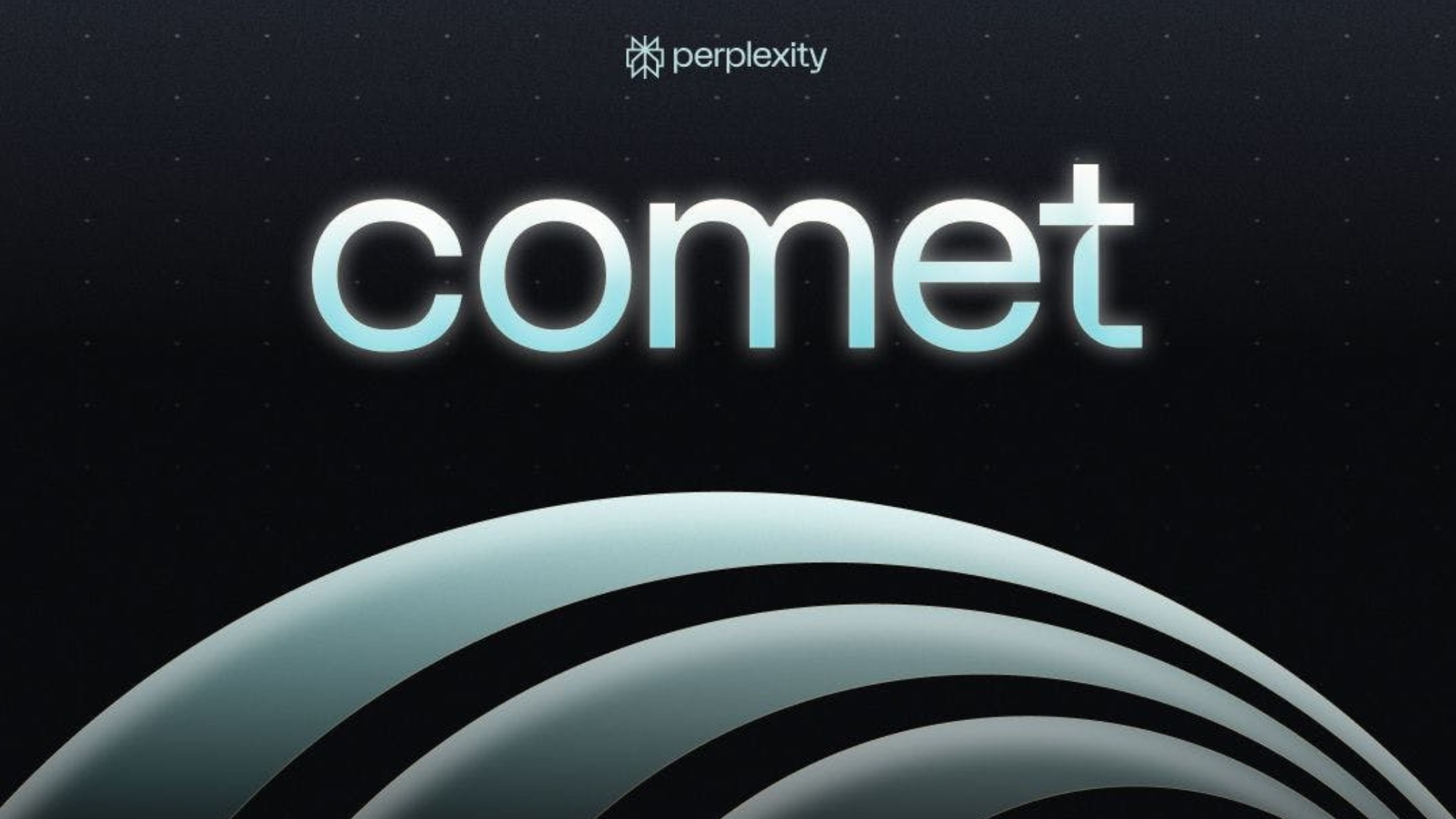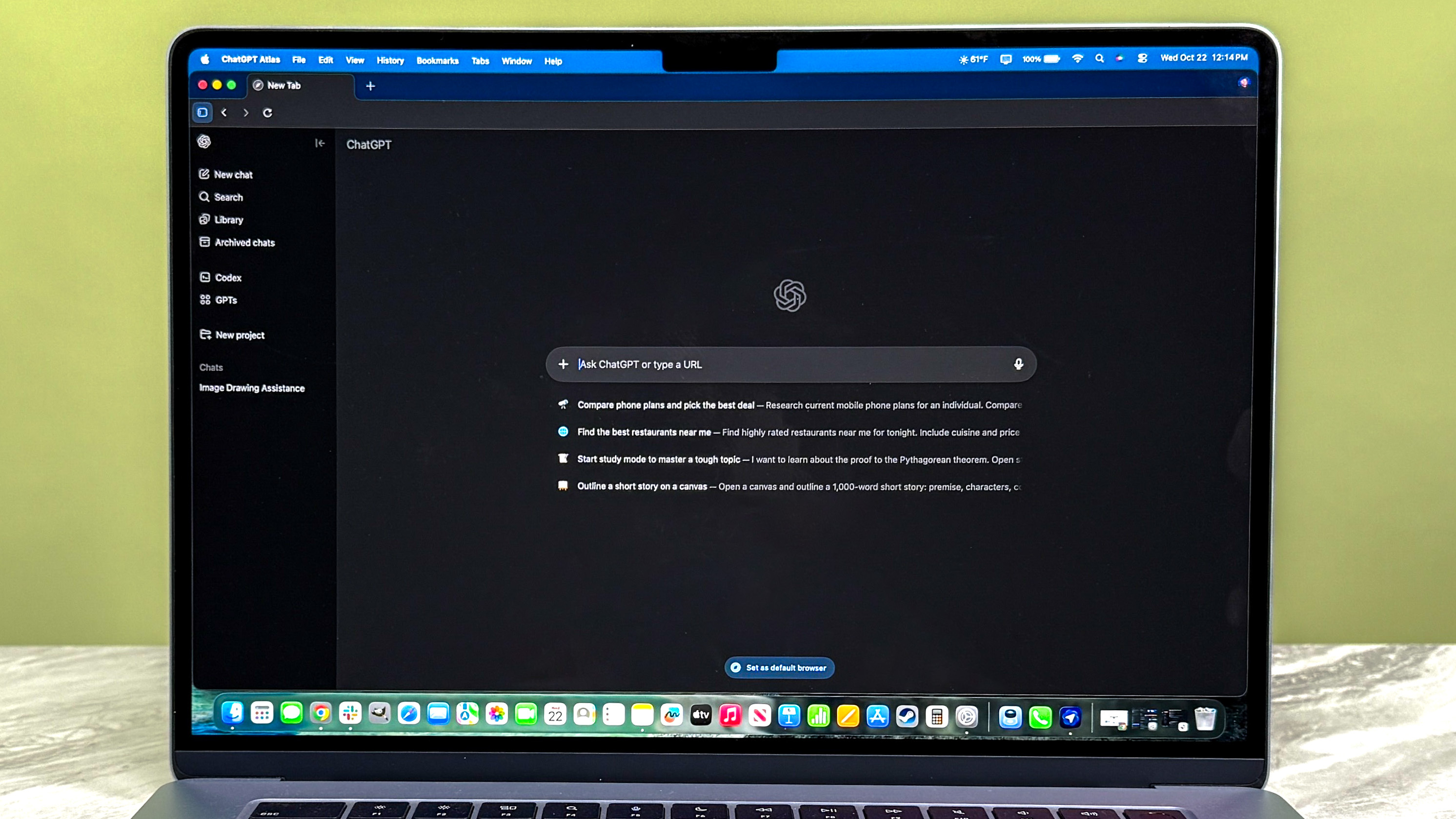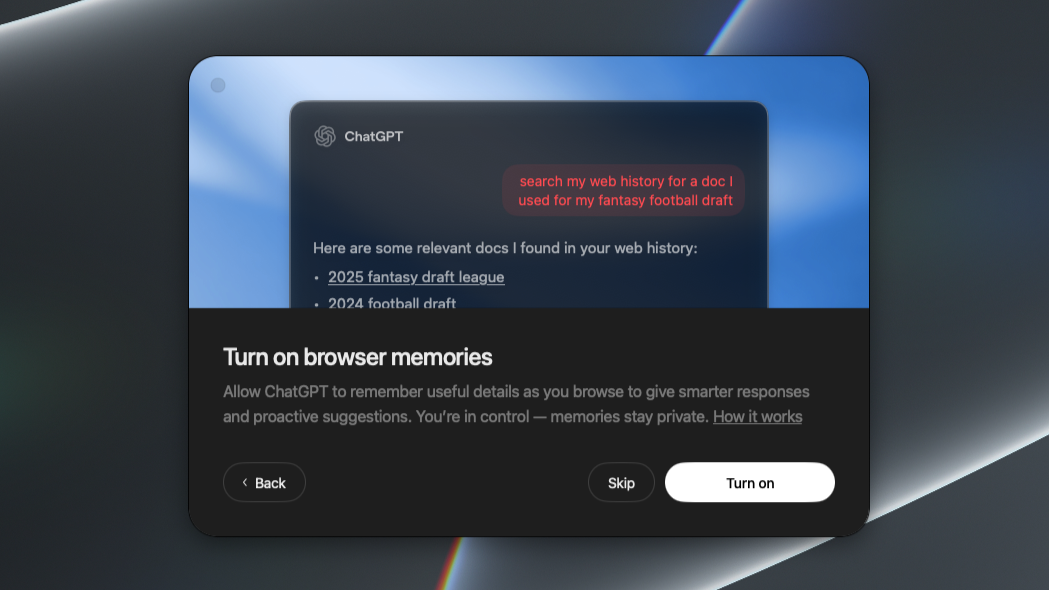ChatGPT Atlas is a privacy minefield — here's why and what you can do about it
But don't worry you can opt out

OpenAI, the company behind ChatGPT, is now dipping its toes into a world that it has been interested in for a while now: Web browsing. There have been rumours for months, if not years, that OpenAI would one day release its own AI browser, and now it is here.
ChatGPT Atlas is a competitor to the likes of Chrome and Safari. It features the same branding as ChatGPT, but built on top of the Chromium software, it looks and acts almost exactly the same as Google Chrome.
The big difference is that the company’s chatbot has been integrated into the system, allowing you to ask questions about a page you’re looking at. This means you can get ChatGPT to book your flights, or generally help you use the internet at speed without having to think as much.
Sounds great, right? Well, unsurprisingly, there is a bit of a catch. Those who are more eagle-eyed when it comes to privacy have been quick to notice how involved ChatGPT Atlas is when it comes to tracking.
It logs which websites you visit, but also stores memories of what you look at and do on these sites. Not to mention, as part of the agent functionality, it can take over and complete actions on your behalf.
AI browsing and your data

For a company like OpenAI, data is worth its weight in gold. ChatGPT recently launched its own memory feature, storing your likes and dislikes, preferences, and opinions in one core database.
With this, the model can better adapt itself to you, pitching things it knows you will like and speaking in a way that appeals to your personality. With the inclusion of memories on ChatGPT Atlas, this is likely to extend further.
Get instant access to breaking news, the hottest reviews, great deals and helpful tips.
OpenAI hasn’t said much about its plans with data collection, within ChatGPT or Atlas, but between the two, it could build up an incredibly in-depth picture of you, your personality, and needs.
This was something that ChatGPT competitor Perplexity came under fire for as it geared up to release its own AI browser, known as Comet.
“That’s kind of one of the other reasons we wanted to build a browser, is we want to get data even outside the app to better understand you,” said Perplexity’s CEO, Aravind Srinivas, on the TBPN podcast.
“Because some of the prompts that people do in these AIs are purely work-related. It’s not like that’s personal.”
He explains that, for a lot of people, the way they were using Perplexity wasn’t giving enough insight into the kind of stuff they would want to buy or would be interested in, making it hard to serve them up ads.
The ChatGPT Atlas approach

For OpenAI, the same could be possible. When you load up Atlas for the first time, it will ask for permission to build a set of memories on you about which sites you visit, and will surface these memories when needed.
The use of these memories is meant to be helpful, guiding the Atlas experience to better know you. For example, it might remember that you were searching for flights for a certain date and have shown a preference for a certain airline before.
Equally, if you’re trying to shop, it will remember that you typically shop through Amazon or have a preference for certain brands.
While this will often be useful, saving small bits of information about your preferences, it is hard to control exactly what is saved. Where one bit of information might feel useful, another might be a shameful thing you don’t want tracked, or result in reminders of something you want to forget.
Where one bit of information might feel useful, another might be a shameful thing you don’t want tracked
If you opt in for memories, you can go into your settings and delete or archive them. Your memories are also tied exclusively to your account, so even if you’re a member of a workspace, only you’ll be able to see them.
It also won’t remember government IDs, bank account numbers, online credentials, or medical or financial information. It also won’t remember anything to do with adult websites.
However, as The Washington Post reports, some of this information is already slipping through the cracks. A story covering ChatGPT Atlas explains that Lena Cohen, a saff technologist at The Electric Frontier Foundation, found multiple points of sensitive data were saved by Atlas.
This included sexual and reproductive health services via Planned Parenthood Direct and the name of a real doctor.
How to get around ChatGPT Atlas memories

If the idea of ChatGPT Atlas storing memories about you feels a bit… freaky, then there are ways around it. You can opt out of the memories function, or as we mentioned above, you can delete or archive specific memories.
You can also use an incognito mode, like you would find on most browsers. When using this mode, no information will be stored to your history or memories.
Included in the data controls for Atlas is the ability to choose whether the browser trains from your activity, but surprisingly, this is an opt-in feature.
The new frontier
AI browsers are very much a new trend, but one that is here to stay. Between the likes of ChatGPT Atlas, Perplexity Comet and Opera Neon, there are already plenty of them out there and more will come.
Like any new development in the world of tech, it will likely be messy at first. Brave, an alternative internet browser, has already highlighted the vulnerabilities that these models can have to being scammed.
AI agents are given a lot of control over your browser and your information, and given the ability to make decisions on your behalf. With that comes a lot of risk, but equally, the ability for a lot of impressive new features.
More from Tom's Guide
- I just discovered Siri has secret responses — 5 hidden easter eggs you need to try right now
- How to get free Perplexity Pro — 3 ways you can qualify
- Gemini's Nano Banana goes viral: 3 genius tips for creating amazing images

Alex is the AI editor at TomsGuide. Dialed into all things artificial intelligence in the world right now, he knows the best chatbots, the weirdest AI image generators, and the ins and outs of one of tech’s biggest topics.
Before joining the Tom’s Guide team, Alex worked for the brands TechRadar and BBC Science Focus.
He was highly commended in the Specialist Writer category at the BSME's 2023 and was part of a team to win best podcast at the BSME's 2025.
In his time as a journalist, he has covered the latest in AI and robotics, broadband deals, the potential for alien life, the science of being slapped, and just about everything in between.
When he’s not trying to wrap his head around the latest AI whitepaper, Alex pretends to be a capable runner, cook, and climber.
You must confirm your public display name before commenting
Please logout and then login again, you will then be prompted to enter your display name.
 Club Benefits
Club Benefits















